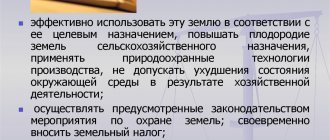What are they regulated by?
The rights and obligations of owners and other persons living in residential areas are regulated by articles , and 67 of the Housing Code of the Russian Federation. According to the law, the owner of the area independently establishes the procedure for the disposal and use of the dwelling in his property .
So, legally, according to Art. 31 of the Housing Code of Russia, members of the owner’s family can live in a privatized apartment, that is, the owner’s spouse, children, mother, father, etc., as well as other persons using the residential premises at the will of the owner.
IMPORTANT : The owner of the home has the right to accommodate and (or) register on his territory persons with whom he is not related. It is only important to follow the rules for using housing and not exceed your authority.
Types of registration accounting
Registration can be of two types – temporary and permanent. In this case, the length of stay matters. That is, it can be unlimited or determined by a specific date.
Constant
Permanent stay is characterized by an unlimited period of time.
This happens when the person concerned intends to actually live at a specific address. This is typical for situations when the place of residence changes. If this happens, the interested person contacts the registration authority within seven actual days from the moment of arrival.
To register, a person must submit the necessary documents. The registration period will be three actual days. If registration was carried out through a multifunctional center, then the period for implementing the procedure will be seven working days.
Temporary
In practice, situations often arise when a person intends to live for a certain period of time. This may be due to study, work, or the need to care for a sick relative or family member.
For temporary registration, other deadlines are defined. If a person intends to live at a specific address for more than ninety days, then he is obliged to contact the registration authority before the expiration of such a period. That is, in this case, you can actually use the home or apartment for three months and only then register.
In such a situation, as with permanent registration, you must present your passport, application and consent of the owner. The registration period will be three working days. The actual period of stay is determined by agreement with the owner.
What does it include?
There are a number of identical responsibilities and rights for residents of privatized housing, regardless of their status. All residents are required to promptly pay fees for housing and communal services by agreement among themselves on the distribution of funds.
As follows from Article 288 of the Civil Code of Russia, an apartment is intended to provide housing conditions for people and it is prohibited to use it as a commercial or other facility. Neither the owner nor registered people have the right to convert residential space into an organization if the premises are not transferred to non-residential status.
In addition, for all persons living in the same territory, there is a rule of non-violation of the rights of others . All actions related to a privatized apartment must not contradict the law and infringe on the interests of residents.
Next, it makes sense to consider in detail what rights and responsibilities are available to citizens using a privatized apartment.
For the owner
The owner, as the legal owner of privatized housing, has the most extensive list of responsibilities and rights. He must monitor the technical condition of the apartment, the general order and promptly eliminate major and minor faults. The rights and responsibilities of the apartment owner include :
- maintenance of technical equipment;
- timely replacement of faulty technical equipment at personal expense;
- provision of living space under a lease agreement or agreement for free use to third parties;
- payment of the annual property tax - only the owner must pay it (of course, other residents can contribute their funds, but the apartment owner has no right to demand this from them);
- respect for the legitimate interests of neighbors;
- compliance with the rules for using housing and preventing mismanagement of it;
- ensuring the management of municipal solid waste (collection, collection, transportation, disposal) by drawing up an agreement with the relevant service;
- preventing production organizations from locating in the apartment;
- carrying out the redevelopment of the internal space with the previous preparation of the necessary documentation.
ATTENTION : Redevelopment of even the interior of the apartment is prohibited without the consent of government organizations, otherwise the owner may be held administratively liable and pay a fine.
Watch a video about the rights and responsibilities of the owner of privatized housing:
For family members of the owner
Maintaining the apartment in proper condition is an obligation that concerns all capable family members of the owner of privatized real estate. They must promptly notice and inform the owner about possible technical malfunctions.
Payment for repair work due to broken technical equipment falls on the shoulders of the apartment owner, but family members can also contribute money. The essential rights and responsibilities of relatives of the owner of the territory they share with him include :
- maintaining housing in order, preventing the apartment from becoming abandoned;
- payment of utility bills every month;
- respecting the interests of other residents and not interfering with their personal freedom.
The right to use a privatized apartment is terminated for the owner’s spouse after a divorce; accordingly, both rights and obligations are canceled (Article 31 of the Housing Code of the Russian Federation). However, the right of residence can be extended by decision of a judicial authority, and then the corresponding powers remain with the wife/husband.
For foreign residents
According to paragraph 2 of Art. 31 of the Housing Code of the Russian Federation, the owner of the living space has the right to dispose of it at his own discretion , including moving into the apartment citizens who are not related to him, under a rental agreement, lease or free use. Upon termination of the contract, the owner of the residential property has the right to evict these persons legally.
Those residents who are not family members of the owner are also required to maintain order in the apartment and inform the owner about problems with the equipment. Payment of utilities for citizens renting housing is mandatory only if it is not included in the rent, which is certainly specified in the contract.
In addition, tenants or persons living in an apartment on the basis of free use must respect the interests of neighbors and prevent the apartment from becoming an ownerless, neglected premises.
For registered
Registration in itself does not give a citizen the right to dispose of housing . The owner may also, at his discretion, remove a resident from his property, unless this is in conflict with the law.
However, persons registered in a privatized apartment also have the same rights and obligations as relatives of the owner of residential property.
Ninth Court of Cassation of General Jurisdiction (case No. 88 – 3019/2021).
In another case, the Management Company "Servicing Company of Magadan" went to court to force the owner of a non-residential premises in an apartment building to provide access to the store premises during the repair of heating networks. Previously, due to the emergency condition of utility networks, the owners of the apartment building at a general meeting decided to replace worn out communications. Elimination of the emergency situation required access to utility networks in the defendant’s non-residential premises. The owner's refusal to provide access to the store premises precluded repair and restoration work and caused significant inconvenience to residents due to the lack of a heating system.
The Magadan City Court satisfied the claim. The appellate instance overturned the decision and refused to satisfy the claims of the Criminal Code.
The case was then submitted to the Ninth Court of Cassation of General Jurisdiction. From the inspection report of the utility networks it follows: it is necessary to replace the heating risers, which are 90% worn out; The owner of the store premises reported that the risers were replaced in 2010; he did not provide access to the risers of the heating and water supply system, so it is not possible to replace them. The act states that the owner refused to sign the act. However, there is no information in the act that it was drawn up in the presence of the owner. Despite the categorical conclusion in the act about the need to replace the risers of the heating system in the non-residential premises below, no references are given to specific shortcomings of the common property. There is no information in the case materials that any of the persons who drew up the act have special knowledge that allows them to reach the conclusions indicated in the act.
The panel of judges agreed with the conclusion of the appellate court that the plaintiff:
- declared a demand to oblige the defendant to provide access to the premises prematurely, since the fact of inoperability and the need to carry out work in the non-residential premises, which belongs to the defendant, was not confirmed by adequate evidence;
- The notification of the defendant by the Criminal Code about the provision of access to non-residential premises was made in violation of the procedure provided for in subparagraph “o” of paragraph 31 of the Rules for the Provision of Public Utilities No. 354.
Under such circumstances, the cassation court found no grounds for canceling or changing the appeal ruling.
Regulatory regulation
Current legislation regarding residential premises regulates the rights and obligations of owners in several legal acts. They are prescribed in the Housing Code (Article 30 of the Housing Code of the Russian Federation), specialized SNiP, and sanitary and epidemiological requirements.
In particular, the level of vibration and noise and acceptable indicators of electromagnetic radiation are regulated.
When performing interior finishing, safety requirements apply to the materials used. Attention! A number of current provisions in various legislative acts may contradict each other. Therefore, when making decisions in controversial situations, it is worth contacting a lawyer for advice.
Features of rights if there are several owners
Most problems for residential property owners arise in situations where there are several property owners. In such a situation, it can be difficult to determine the rights of each party and the boundaries of their powers. It can be unequivocally stated that all decisions regarding property should be made jointly . Most often we are talking about leasing, selling, or drawing up a gift agreement.
Financial issues are resolved in proportion to the share in the property. If the spouses are equal (except in situations with a prenuptial agreement), the situation may be different during inheritance. At the same time, each of the co-owners has the right of residence and the obligation to pay the costs of maintaining the apartment or house. There may be oral agreements or legally enforceable relationships.
Reference! If a specific room is allocated in the real estate documents drawn up to establish ownership, the owner can dispose of it as he wishes. But when selling such a share, the owners of other shares have the right of first refusal.
Requirements for the maintenance of the apartment
The list of requirements that must be fulfilled by the owner is spelled out in sufficient detail in the current legislation. In particular, the rules for maintaining apartments oblige owners to monitor the serviceability of engineering communications, carry out their repairs in a timely manner, eliminating any malfunctions that may arise.
also a ban on the following actions by the owner:
- inappropriate use of premises (for example, opening a production facility or retail outlet is not allowed);
- performing work that is accompanied by high levels of noise, dust, and other factors that disturb neighbors;
- storage of harmful, explosive, and fire hazardous substances;
- placing your belongings in common areas that cause inconvenience to other property owners in an apartment building.
Special requirements apply to the microclimate in residential premises of apartment buildings, since in combination factors such as heating, ventilation, sewerage and water supply also affect the living conditions of other owners.
For example, situations often arise when a specialist called for ventilation maintenance suggests combining the ventilation ducts of different apartments into a single system. The argument in favor of such a solution is clogged channels that are unable to provide sufficient air exchange. This is a direct violation of the rights of owners. The problem should be corrected by cleaning the shafts.
In some cases, it is practiced to deprive the owner of property rights in court if he does not fulfill his duties to maintain housing , and regularly violates public order. Such measures are taken only after the authorities issue official warnings indicating a time frame for eliminating the identified problems.
In such a situation, public auctions are held. Funds received from the sale of real estate are used to compensate for damage and carry out repairs if the problem was caused by the negligence of the owner of the residential premises. The former owner receives only the remainder of the money.





